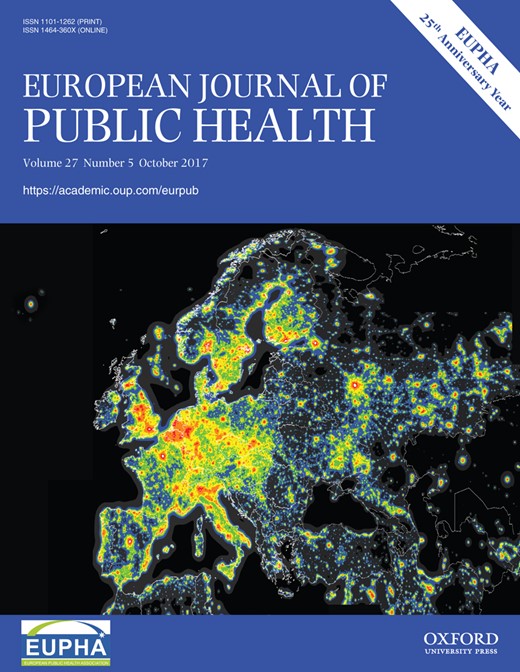-
PDF
- Split View
-
Views
-
Cite
Cite
Christopher A. Birt, Healthy diets and a healthy planet, European Journal of Public Health, Volume 27, Issue 5, October 2017, Pages 790–791, https://doi.org/10.1093/eurpub/ckx102
Close - Share Icon Share
What we eat has always been a central component of culture, wherever in the world we live. Since time immemorial humans have eaten diets based on what was consumed locally, and, whatever they consisted of, diets generally were seen as ‘healthy’ and ‘wholesome’.1 Not until the twentieth century were scientific diet research institutes established, but these were little noticed by other scientists until John Boyd Orr, the first Director of Aberdeen’s Rowett Research Institute (later Lord Boyd Orr, the first Director General of the UN Food and Agriculture Organisation), published in 1936 his considerable study of the appalling levels of malnutrition among the British people, regardless of economic status;2 it was on the basis of this that the wartime coalition government invited Boyd Orr to design a scientifically based diet with the aim of keeping the UK population healthy during the Second World War.
After 1945 various major studies (the Seven Countries Study3 was one of the first) began to throw light on the unhealthiness of some components of diets. However, it was not until the 1980s that other scientists, and then the wider population, began to take serious interest in diet and nutrition. It had become apparent that most diets in the developed world consisted of too much protein of animal origin, too much saturated fat, and too little fruit and vegetables, including fibre; diets also contained undesirable quantities of salt and sugar. Various public bodies and NGOs established initiatives designed to promote healthier diets.4 However, by the early 1990s, concern for environmental protection had become another increasingly prominent scientific priority, and the threat posed to human civilisation by climate change began to be understood. Farming, hitherto seen throughout history as the main source of health promoting nutrition, was suddenly identified as the industry responsible for production of greater quantities of global warming gases than any other, with cows responsible for nearly 20% of all global warming gases worldwide.5 So by early this century, two separate groups of scientists were studying and becoming increasingly concerned about farming practices: public health nutrition scientists and environmental scientists—but there was almost no communication between these two groups, with a serious lack of significant joint research6
Acknowledging this problem, in late 2015, the Executive Council of EUPHA challenged its Food and Nutrition Section to carry out a literature review in the fields of food production, sustainability and healthy nutrition, and to make recommendations. The methodology adopted by the working group set up by the Section has been described in its final report.6 A very disturbing finding was that there appears to be no one, neither within research communities, nor in policy development and government, in a position to address either research or policy across the whole spectrum of food production, from farm to fork, in a manner which encompasses at the same time both healthy nutrition and sustainability. There are, therefore, substantial areas where research is much needed, but where none has been carried out. For example, if agricultural subsidies were to be changed radically (e.g. if mammalian meat production were no longer to be subsidised, and the subsidy moved instead to fruit and vegetable production), what would be the effects on the behaviour of farmers, on the rural economy generally, on the products marketed by the food industry, on the acceptability of foods marketed to the general public, and indeed on population nutritional health itself? It is becoming clear that we need a European research infrastructure, to include agricultural scientists, public health nutrition scientists, clinical nutrition scientists, and various categories of social scientists (in sociology, in economics, and in political science, etc.), and maybe other categories of scientist as well, which could both promote and fund research designed to answer such questions—research carried out by genuinely multi-disciplinary teams.
The evidence is already clear that diets need to be modified in the interests of both human and planetary health, starting with a major reduction in production and consumption of red meat.6 However, there is almost no evidence of joined up policy development in the field of nutrition; there are government ministries for agriculture and the environment, but other ministries are responsible for promotion of healthy nutrition, and for food safety, and yet others responsible for food labelling and consumer protection. There is clearly a need for the European Union, and other governments, to establish departments responsible for overall food production, which could develop integrated policies, designed to promote healthy nutrition and environmental protection (especially to mitigate climate change risks), across agriculture, the food industry, transport of food products, marketing and advertising, food retail, and nutrition education. There are a large number of players in the food chain, and they must all be included within policy development, especially if sustainability right through this chain is to be assured.
Conflicts of interest: None declared.




Comments